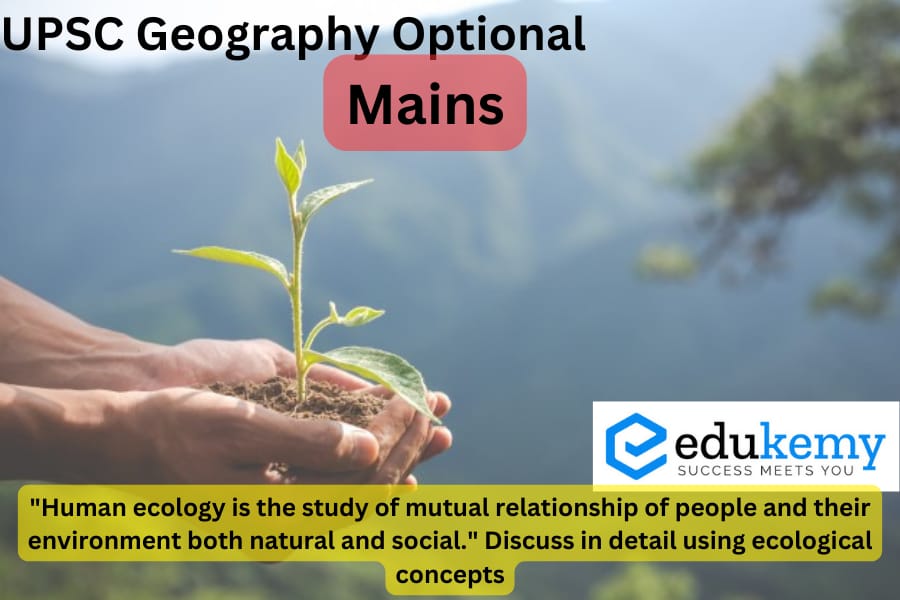
Human Ecology as a mutual relationship of people and their environment both natural and social:
Human Ecology and Social and Built Environments:
- Human ecology considers the impact of social structures and built environments on human interactions and environmental outcomes.
- For example, urban planning and infrastructure design significantly influence resource consumption patterns, waste generation, and energy use.
- The design of cities and the distribution of green spaces affect air quality, urban heat islands, and biodiversity within urban settings.
Human Ecology as study of the Natural Environments and Human Impact:
- The relationship between humans and natural environments is another critical aspect of human ecology.
- Activities such as agriculture, deforestation, and industrialization have profound impacts on ecosystems.
- These activities alter land use, water cycles, and biodiversity, leading to consequences like soil erosion, water scarcity, and loss of habitats.
- Human ecology seeks to understand these impacts in a holistic manner, considering both ecological and social dimensions.
Human Ecology and Cultural and Behavioural Aspects:
- Cultural beliefs and practices significantly shape human-environment interactions.
- For example, different societies have varying practices related to land use, water conservation, and wildlife management, which reflect their ecological, cultural, and historical contexts.
- Human ecology examines how these practices evolve and their effects on both local and global ecosystems.
Human Ecology Relationship with Economic and Political Factors:
- Economic policies and political decisions have direct and indirect effects on environmental conditions.
- Policies governing resource extraction, energy use, and land development can either protect or harm the environment.
- Human ecology analyzes these policies within the broader context of economic systems and political structures, aiming to identify pathways towards sustainability.
Human ecology offers a comprehensive framework to understand human-environment relationships. By integrating ecological and social insights, it promotes sustainable practices for the well-being of both humans and ecosystems.
Contents
In case you still have your doubts, contact us on 9811333901.
For UPSC Prelims Resources, Click here
For Daily Updates and Study Material:
Join our Telegram Channel – Edukemy for IAS
- 1. Learn through Videos – here
- 2. Be Exam Ready by Practicing Daily MCQs – here
- 3. Daily Newsletter – Get all your Current Affairs Covered – here
- 4. Mains Answer Writing Practice – here

